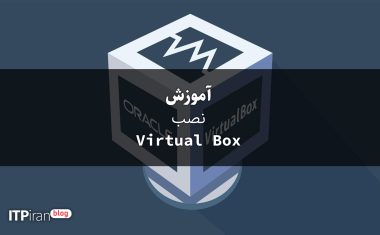If you have recently purchased website hosting, you probably know the name cPanel You've heard it a lot.
cPanel is one of the most popular and powerful Hosting management control panels It is the world's first website management software that allows you to easily manage your website without the need for advanced technical knowledge.
In this article, you will learn in detail what cPanel is, what sections it has, how to log in to it, and use its main tools.
What is cPanel?
cPanel One Web Hosting Control Panel which allows users and website administrators to manage all aspects of their hosting services through A simple and practical graphical interface Manage.
This panel is on servers Linux (Linux-based Servers) It is installed and based on the language Perl and PHP It is developed. Its structure is designed in such a way that users, even without in-depth knowledge of server administration, can perform tasks such as creating email, installing WordPress, setting up a domain, and taking backups with just a few clicks.

General structure of cPanel
In fact, cPanel consists of two main parts:
WHM (WebHost Manager):
It is intended for server administrators or resellers and gives complete control over the creation and management of various accounts.cPanel User Interface:
This is the environment that end users (such as site owners or developers) have access to to manage their service.
Key features and capabilities of cPanel
Some of the important and widely used features of cPanel include:
File management
Through File Manager Users can manage website files in an environment similar to Windows File Explorer. This section includes features such as:
Edit files online
Compressing and extracting files
Upload and delete directly from the browser
It has.
Database management
cPanel from database systems MySQL and PostgreSQL Supports. Users can create databases, add users to them, and manage them through phpMyAdmin Manage queries and tables.
Domain Management
Includes setting up additional domains (Addon Domain), parked slopes (Parked Domain) and subdomains (Subdomains) becomes.
Creating and managing emails
cPanel allows you to create email addresses with your own domain (e.g. [email protected]), manage your email space and access Webmail.
Security and SSL
One of the vital parts of cPanel is the security modules, which include SSL certificate installation, firewall activation, IP Blocker, Directory Privacy, and Hotlink protection.
Backup & Restore
Users can take full or partial backups of their website, files, and databases. The tool also Backup Wizard Information is available for easy retrieval.
Automatic CMS installation
Using Softaculous Apps Installer You can install content management systems like WordPress, Joomla, Drupal, and PrestaShop with just a few clicks.
Benefits of using cPanel
Simple and intuitive user interface – Quick learning even for novice users
High compatibility with most hosts and CMSs
Free SSL support and easy installation
Ability to fully manage server resources (CPU, RAM, Disk Usage)
Supports automatic backup and quick restore
Continuous updates and high security
Why do hosting companies use cPanel?
Because cPanel:
The most stable and safest The control panel in a Linux environment is considered
Has Official documentation and strong support is
With automation scripts like WHMCS It integrates well.
Possibility Manage multiple customer accounts Provides through WHM
For example, if WordPress Hosting Iran You will usually work with the cPanel environment, which gives you speed, security, and complete control over files and databases.
And if your site is hosted on external servers, such as cPanel hosting NetherlandsYou have the same user interface but with an international location and lower ping for users outside of Iran.
⚠️ Important security tip
Despite cPanel's high security, it is always recommended to:
Use a strong password and two-factor authentication.
Restrict FTP access to specific IPs
Keep PHP version and plugins up to date
If from WordPress Hosting Iran you use, usually your default control panel cPanel It is because it offers high speed and excellent stability in the Iranian location.
How to log in to cPanel
After purchasing hosting, the hosting company usually sends you a link like the following:
https://yourdomain.com:2083یا:
https://yourdomain.com/cpanelبعد از وارد کردن نام کاربری و رمز عبور (که از طرف هاستینگ ارسال میشود)، وارد داشبورد cPanel خواهید شد.
اگر از هاست سیپنل لوکیشن هلند استفاده میکنید، ممکن است آدرس ورود شما با IP یا دامنه متفاوتی ارائه شود، ولی روش ورود دقیقاً مشابه است.
آشنایی با بخشهای اصلی cPanel
رابط کاربری cPanel از چند بخش اصلی تشکیل شده است. در ادامه، مهمترین قسمتها را بررسی میکنیم .
۱. File Manager (مدیریت فایلها)
این بخش شبیه به File Explorer در ویندوز است.
در این قسمت میتوانید:
فایلها را آپلود کنید
ویرایش یا حذف کنید
فایل ZIP بسازید یا از حالت فشرده خارج کنید
پوشهی اصلی سایت شما معمولاً public_html نام دارد و همهی فایلهای وبسایت باید در آن قرار بگیرند.
۲. Databases (پایگاهدادهها)
برای مدیریت دادههای وبسایتهایی مانند وردپرس یا فروشگاههای آنلاین، به دیتابیس نیاز دارید.
در این بخش دو ابزار کلیدی وجود دارد:
MySQL® Databases: ساخت دیتابیس و یوزر
phpMyAdmin: ویرایش و مشاهده جداول دیتابیس بهصورت گرافیکی
در هاستهای cPanel لوکیشن ایران، دیتابیسها روی سرورهای پرسرعت SSD قرار دارند که سرعت کوئریها را بهصورت چشمگیری افزایش میدهند.
۳. Email Accounts (ساخت ایمیل اختصاصی)
از طریق این بخش میتوانید برای دامنهی خود ایمیلهای حرفهای بسازید، مثل:
[email protected]
[email protected]همچنین میتوانید به Webmail متصل شوید یا از Outlook / Gmail برای مدیریت ایمیلها استفاده کنید.
۴. Domains (مدیریت دامنهها)
در این بخش میتوانید دامنهها و سابدامنهها را مدیریت کنید:
Addon Domains: اضافه کردن دامنه جدید به هاست
Subdomains: ساخت زیر دامنه (مثل blog.yourdomain.com)
Redirects: ریدایرکت کردن کاربران از یک صفحه به صفحه دیگر
در هاستهای هلند به دلیل استفاده از DNS بینالمللی، مدیریت دامنهها سریعتر انجام میشود.
۵. Security (امنیت)
cPanel ابزارهای مختلفی برای امنیت دارد، از جمله:
SSL/TLS: نصب گواهی SSL رایگان (Let’s Encrypt)
IP Blocker: مسدود کردن IPهای مزاحم
Hotlink Protection: جلوگیری از سرقت تصاویر سایت
۶. Metrics (آمار و گزارشها)
در این بخش میتوانید آمار بازدید، میزان استفاده از CPU و Disk، و ترافیک مصرفی را مشاهده کنید.
ابزارهایی مانند Awstats و Webalizer دادههای تحلیلی مفیدی در اختیار شما میگذارند.
۷. Software (نرمافزارها)
بخش Software ابزارهای فنیتر مثل PHP Selector و Softaculous را شامل میشود.
Select PHP Version: انتخاب نسخهی PHP
Softaculous Apps Installer: نصب خودکار CMSهایی مثل وردپرس، جوملا، پرستاشاپ و غیره تنها با چند کلیک.
نصب وردپرس از طریق cPanel
یکی از محبوبترین کاربردهای cPanel، نصب سریع وردپرس است.
کافیست از بخش Softaculous Apps Installer گزینهی WordPress را انتخاب کرده و مراحل زیر را طی کنید:
انتخاب دامنه
تنظیم عنوان سایت و نام کاربری ادمین
انتخاب زبان و نسخهی وردپرس
کلیک روی Install Now
در چند ثانیه وردپرس روی دامنه شما نصب میشود و آماده استفاده خواهد بود.
در هاستهای لوکیشن هلند نیز این مراحل دقیقاً مشابه هستند و تنها تفاوت در آدرس سرور است.
👉 مشاهده پلنهای هاست سیپنل هلند
مدیریت فایلها و بکاپ در cPanel
برای جلوگیری از از دست رفتن اطلاعات، cPanel ابزارهای پشتیبانگیری (Backup) دارد.
از طریق بخش Backup Wizard میتوانید:
از کل هاست یا فقط از فایلها و دیتابیسها بکاپ بگیرید
بکاپهای قدیمی را بازگردانید (Restore)
توصیه میشود بهصورت دورهای بکاپ بگیرید و در فضای ابری (مثل Google Drive) ذخیره کنید.
تنظیمات PHP و عملکرد سرور
در بخش Software → Select PHP Version میتوانید نسخهی PHP را انتخاب کنید یا ماژولهای مورد نیاز (مثل pdo_mysql یا curl) را فعال کنید.
همچنین از طریق Optimize Website میتوان فشردهسازی GZIP را فعال کرد تا سرعت سایت بیشتر شود.
اتصال دامنه به cPanel
برای اتصال دامنه، کافی است DNSهای دامنه را روی NameServerهای شرکت هاستینگ تنظیم کنید.
سپس در بخش Addon Domains، دامنه جدید را اضافه کنید تا به پوشه دلخواه متصل شود.
نکات امنیتی مهم برای کاربران تازهکار
رمز عبور قوی برای ورود به cPanel تنظیم کنید.
همیشه SSL را فعال نگه دارید.
از بخش IP Blocker برای جلوگیری از دسترسیهای غیرمجاز استفاده کنید.
از گزینهی Two-Factor Authentication (2FA) برای افزایش امنیت ورود استفاده کنید.










